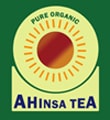Sometimes back Ahinsa Tea website administrator called me and said that my two para piece on organic certification on their FB has got well over 100000 hits. Though it is a very large number for a website like this, it did not surprise me. That is because organic certification is one of the most important aspects of any organic business/agriculture/production. Obtaining organic certification is a very expensive process. One has to fulfill so many requirements, meet many standards, and pass unlimited barriers to obtain an organic certificate. Meeting these conditions is one thing. Equally or even more difficult thing is to maintain them for perpetuity. Most of the accrediting agencies are private businesses that maximize profits certifying organic farms and products. Hence, there can be a possibility for a conflict of interest and it is a topic for another day.
A farmer can be proud if s/he owns an organic certificate. S/he must be prouder to maintain such a certificate. There are several types of organic certificates. One is an individual farm inspection based organic certificate. It is really owned by one individual/ or one business unit or one company etc. Regular auditing is done by a professional body or by an accrediting agency. This system can be very expensive and most of the farmers in developing countries could not afford it. Only large and rich farmers can obtain such a certificate.
There is an organic certificate system for a group of farmers. Under this system, all members must maintain required standards. This certificate is awarded based on individual member’s self-reporting or honorable disclaimer followed by the mutual audit by members themselves. The accrediting agency’s annual or semi-annual audit, evaluations, and assessments contribute towards real certification. One advantage of this system is to share the accrediting cost among the members to reduce an individual’s share. However, when the group gets bigger (e. g. 15,000 members) free-rider problem or falls reporting is inevitable.
There can be other certification systems too. However, I focus on these two for the moment and make the following observations.
(1) There is a major disadvantage for organic farmers in developing countries in receiving organic certificates from USDA, EU or JAS etc due to very cost associated with the individual certificate and free-rider problem in the second system
(2) The USDA, EU and several other large developed countries and powerful agencies/organizations have handed over issuing their certificates to the earlier mentioned accrediting business/agencies. Once they are empowered to issue those organic certificates, often these small farmers at the mercy of these accrediting businesses. For example, if USDA has given the authority to undertake inspection, and audit functions to accrediting business, the understanding is that these accrediting agencies follow USDA standards. However, outside the USA, these agencies have twisted USDA arms and got to agreements to use their own standards to evaluate farmer operations in those countries.
Under this scenario, if the accrediting agency’s origin is EU, then they generally follow EU standards as their own standards. Under such circumstances, they issue a USDA certificate it is issued under the guise of our own standards that are more stringent than USDA. In that case truly what they have done is issue a USDA certificate under the EU standards. Hence, developing country farmers receive lower prices for their organic products since they did not qualify for an organic certificate and USA consumers will suffer paying higher prices due to the lower supply of organic products in the market.
